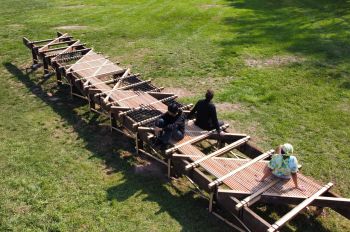Illinois Tech Team Advances to Second Round in the National Institutes of Health Business Plan National Competition
An interdisciplinary student team from Illinois Institute of Technology (IIT) has advanced to the second round in the NIH Neurostartup Challenge, a three-phase national business plan competition sponsored by National Institutes of Health (NIH) where teams are charged with developing a commercially viable business plan for one of 16 NIH-patented technologies. The winning team will be awarded the chance to launch a funded start-up company.
The Illinois Tech team consists of 13 graduate students from Armour College of Engineering, Stuart School of Business and College of Science. The team is being advised by a mentor, an entrepreneur and additional advisors from industry, academia, and venture capital fund experts.
The team is working on a neuroscience therapeutic platform technology designed to treat Multiple Sclerosis. The Illinois Tech team, along with a select number of teams from each invention category, will develop a 10-page business plan with a detailed financial plan and a 20-minute live pitch presented to judges. Winning teams will receive a cash prize of $2,500 and advance to the final phase of the competition by this summer, where winners in each invention category will have the opportunity to potentially launch a start-up company with funding.
Team members include Biomedical Engineering Ph.D. students Sam Bredeson, Emily Dosmar, Gayatri Kaskhedikar, Chris Osswald, Tiwalade Sobayo, and Jeff Stout; Biology Ph.D. students Rama Sashank Madhurapantula and Adriana Manas; and MBA students Yupeng Du, Sai Prashant Boy Reddy, Siddhartha Pidhadia, Devon Nobles and Yeshwanth Kumar Lanka.
The team is being advised by Raja Krishnan, adjunct professor at the Institute of Design and intellectual property manager for the IIT Technology Commercialization Office, and Thomas Mozer, IIT Stuart School of Business adjunct professor.
NIH has a significant portfolio of inventions available for licensing. The start-up challenge is designed to exploit those opportunities into viable products.




